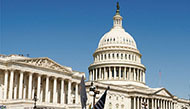Foreign Hospitals in FEZ to Accept Korean Nationals
Staff Reporter
The government decided to allow local residents to receive medical services at foreign-run hospitals in the free economic zones to be set up in Inchon, Pusan and Kwangyang during a Cabinet meeting Tuesday.
``Medical services for native Koreans are inevitable for the establishment of prominent foreign hospitals, which is a key factor for the successful establishment of free economic zones and the government project to make the nation a business hub for Northeast Asia,’’ a Health and Welfare Ministry official said.
According to the government plan, general hospitals, dental clinics and recuperation facilities to be established by foreigners or foreign corporations in the special economic zone will be able to provide medical services to local residents.
But pharmacies operating in the zones will not be allowed to sell medicine to locals, the official said.
Hospitals are expected to have 500-1,000 beds and be completed by around 2008. Health insurance will not cover medical fees at the foreign hospitals.
The planning office of free economic zones is contacting several foreign hospitals to invite competent doctors and medical teams.
The government also pledged to strengthen public medical services to lessen the possible impact that might be caused by foreign hospitals giving services to local patients, allocating a budget of 4 trillion won from 2005 to 2009.
However, controversy is expected on the issue as associations of local doctors and hospitals as well as civic groups are strongly opposed to the plan, saying the measure would result in discrimination against domestic medical institutions.
``Prominent Korean medical manpower should be also used in the establishment of a medical hub for Northeast Asia. The government should scrap such discriminatory policies and give Korean hospitals the same support they are giving to foreign institutions,’’ Kwon Yong-jin, spokesman of the Korean Medical Association said.
Kwon added the government should establish a presidential committee to map out a detailed strategy for the development of the domestic medical service.
The Korean Federation of Medical Groups for Health Rights (KFHR) also denounced the government decision, saying such profit-making hospitals would lead to the collapse of the nation’s medical system, as medical institutions here have not been allowed to become profit-making corporations.
``Also, with wealthy Korean residents visiting these expensive hospitals where health insurance does not cover the medical fees, it will aggravate the gap between the rich and the poor in terms of medical service,’’ the KFHR said in a written statement.
rahnita@koreatimes.co.kr
스마터리빙
more [ 건강]
[ 건강]이제 혈관 건강도 챙기자!
[현대해운]우리 눈에 보이지 않기 때문에 혈관 건강을 챙기는 것은 결코 쉽지 않은데요. 여러분은 혈관 건강을 유지하기 위해 어떤 노력을 하시나요?
 [ 건강]
[ 건강]내 몸이 건강해지는 과일궁합
 [ 라이프]
[ 라이프]벌레야 물럿거라! 천연 해충제 만들기
 [ 건강]
[ 건강]혈압 낮추는데 좋은 식품
[현대해운]혈관 건강은 주로 노화가 진행되면서 지켜야 할 문제라고 인식되어 왔습니다. 최근 생활 패턴과 식생활의 변화로 혈관의 노화 진행이 빨라지고
카테고리 최신기사
- 4기 폐암 치료
- 한국, 북중미 월드컵서 원정 8강 도전… ‘손흥민 라스트댄스’
- ‘메시보다는 손흥민과...’ 美 전역 SON에 푹 빠졌다! 무려 500명 대상 ‘가장 뛰고 싶은 팀’ LAFC 선정
- 미국·캐나다·멕시코, 2026 북중미 월드컵의 모든 것… ‘축구 대제전’ 전 세계 이목 미국으로
- [한국 대표팀 북중미 월드컵 로드맵은] ‘역대급 조편성’ 홍명보호, 32강 넘어 16강 갈까
- ‘최하 평점+부상 교체’ 황희찬 대위기, 울버햄튼 무려 ‘19경기 무승+압도적 꼴찌’... 강등권 탈출 ‘빨간불’
- 목표는 1,000골… 불혹 호날두 “부상 없다면 가능”
사람·사람들
more많이 본 기사
- 새해 첫날 대형화재 참사… 155명 … 1
- 해외 송금시 1% 세금 1월1일부터 부과 개시
- 한인 마켓에서 사라진 ‘플라스틱 봉투’
- 또 일가족 살해·자살 4명 시신 발견 ‘비극’
- ‘김태희♥’ 비, 난리통 연예계 속 의미심장 일침.. “나태하면 사건·사고 나”
- ‘255만 7,047명’ 미국내 한인… 1
- 새해초 폭우 강타… 엔젤레스 산악도로 붕괴
- 오바마케어 보조금 확대 결국 종료… 새해 최대 쟁점으로
- “새해 복 많이 받으세요!” 2026 ‘병오년’ 힘찬 출발
- “키스, 불륜 맞지만 숙행은 억울해”..상간남 입 열었다
- 뉴욕시 첫 무슬림 시장 맘다니 취임
- 시니어 ‘최소인출’ 미준수… 세금 불이익
- 뉴욕시민 기대수명 82.6세⋯팬데믹 이전 회복
- [신년 사설] 붉은 말의 힘찬 기상·역동성으로 도전과 성취를
- 변종 수퍼독감 ‘비상’ 사망자 3,100명 넘어
- 뉴욕한인회 김동민 고문 변호사 문영운… 1
- 온라인에 가짜 광고 ‘렌트 사기’ 기승
- 2025 체육대상에 태권도 이재국씨
- 댄스동우회 아름다운동행, 더나눔하우스에 후원금 전달
- 김민선 백악관 역사위 자문위원 위촉 축하 행사
- 미 거주 한인 255만명… 전세계 최다
- 미군에 쫓기는 베네수行 유조선 감싼 … 1
- 뉴욕시 신임 교육감에 카마 사무엘스 학군장 내정
- 유명 성우 송도순 별세
- 뉴욕한인교역자연합회 송년감사예배
- 활동적 은퇴자 급증…한인시니어센터 “다 찼어요”
- CD 금리 하락, 주식은 불안… ‘원금 지키며 시장에 참여하는 방법’
- 대한항공, 새해 첫 고객맞이 행사
- 나나, 강도 피해→역고소 사건에 입 열었다.. “말도 안 되는 상황”
- 코란에 손 얹고… 뉴욕 첫 무슬림시장 취임 선서
- “트럼프 리조트 마사지사들, 엡스타인에 방문 서비스”
- [신년 축시] 새해 아침
- ‘우크라서 날아온 감사의 국기’
- 라우든 일대 3인조 구리선 절도단 체포…피해액 수백만불
- 비트코인, 연 하락마감 3년만에 내림세로 돌아
- [조지 F. 윌 칼럼] AI 투자 붐이 걱정된다면?… 역사적 맥락을 보라
- LA 등 배치 주방위군 ‘불법’… 완… 1
- 연말 샤핑 ‘역대 최고’ 사상 첫 1조달러 돌파
- LA카운티 ‘원숭이두창’ 감염 발생
- [손영아의 문화산책] ‘슈만의 연가’… 170년 전 멈춘 시간, 끝나지 않은 사랑
- [신년 휘호] 光明大道 (광명대도)
- “美, 평택기지 비행대대 비활성화”…주한미군 감축 관련성 주목
- [김재천 칼럼] 2026년, 미·중 대타협은 가능할까
- 워싱턴 한인들“올해도 힘껏 달려요”
- [미리 보는 CES 2026 ] “올해 핵심 트렌드… AI·로봇·모빌리티·디지털 건강”
- 연준 12월 금리인하… ‘만장일치 실패’
- 美스타트업서 가장 인기있는 창업자 학위는…석박사 아닌 ‘중퇴’
- 건강보험 보조금 종료…중간선거 낀 새해 최대 정치쟁점으로
- KCM, 세 아이 아빠 됐다…지난달 셋째 득남
- 트럼프, 가구 관세 인상 1년간 연기
1/5지식톡

-
 미 육군 사관학교 West Poin…
0
미 육군 사관학교 West Poin…
0https://youtu.be/SxD8cEhNV6Q연락처:wpkapca@gmail.comJohn Choi: 714-716-6414West Point 합격증을 받으셨나요?미 육군사관학교 West Point 학부모 모…
-
 ☝️해외에서도 가능한 한국어 선생님…
0
☝️해외에서도 가능한 한국어 선생님…
0이 영상 하나면 충분합니다!♥️상담신청문의♥️☝️ 문의 폭주로 '선착순 상담'만 진행합니다.☎️ : 02-6213-9094✨카카오톡ID : @GOODEDU77 (@골뱅이 꼭 붙여주셔야합니다…
-
 테슬라 자동차 시트커버 장착
0
테슬라 자동차 시트커버 장착
0테슬라 시트커버, 사놓고 아직 못 씌우셨죠?장착이 생각보다 쉽지 않습니다.20년 경력 전문가에게 맡기세요 — 깔끔하고 딱 맞게 장착해드립니다!장착비용:앞좌석: $40뒷좌석: $60앞·뒷좌석 …
-
 식당용 부탄가스
0
식당용 부탄가스
0식당용 부탄가스 홀세일 합니다 로스앤젤레스 다운타운 픽업 가능 안녕 하세요?강아지 & 고양이 모든 애완동물 / 반려동물 식품 & 모든 애완동물/반려동물 관련 제품들 전문적으로 홀세일/취급하는 회사 입니다 100% …
-
 ACSL 국제 컴퓨터 과학 대회, …
0
ACSL 국제 컴퓨터 과학 대회, …
0웹사이트 : www.eduspot.co.kr 카카오톡 상담하기 : https://pf.kakao.com/_BEQWxb블로그 : https://blog.naver.com/eduspotmain안녕하세요, 에듀스팟입니다…
케이타운 1번가
오피니언
 손영아 문화 칼럼니스트 / YASMA7 대표
손영아 문화 칼럼니스트 / YASMA7 대표 [손영아의 문화산책] ‘슈만의 연가’… 170년 전 멈춘 시간, 끝나지 않은 사랑
 김재천 서강대 국제대학원 교수
김재천 서강대 국제대학원 교수 [김재천 칼럼] 2026년, 미·중 대타협은 가능할까
 조지 F·윌 워싱턴포스트 칼럼니스트
조지 F·윌 워싱턴포스트 칼럼니스트 [조지 F. 윌 칼럼] AI 투자 붐이 걱정된다면?… 역사적 맥락을 보라
 이희숙 시인·수필가
이희숙 시인·수필가 [금요단상] 차가운 길, 이불 한 장의 온기
 한영일 / 서울경제 논설위원
한영일 / 서울경제 논설위원 [만화경] 33년만에 퇴역하는 장보고함

[왈가 왈부] 이혜훈 ‘정말 널 죽였으면’ 폭언, 장관직 수행 가능할까요
 정숙희 논설위원
정숙희 논설위원샴페인, 마지막 날과 첫날을 위하여
 조지 F·윌 워싱턴포스트 칼럼니스트
조지 F·윌 워싱턴포스트 칼럼니스트 [조지 F. 윌 칼럼] 저무는 2025년에 안도의 한숨
 김동찬 시민참여센터 대표
김동찬 시민참여센터 대표 [미국은 지금] 책임 있는 자본 없으면 커뮤니티 미래도 없다
1/3지사별 뉴스

뉴욕시 첫 무슬림 시장 맘다니 취임
미국 최대도시이자 경제 수도로 꼽히는 뉴욕시의 첫 무슬림·남아시아계 시장이자 스스로를 민주사회주의자라고 부르는 조란 맘다니 신임 뉴욕시장이 새…
뉴욕시민 기대수명 82.6세⋯팬데믹 이전 회복

건국 250주년 워싱턴 모뉴먼트 라잇쇼
워싱턴 DC 내셔널 몰 중심에 위치한 워싱턴 모뉴먼트(Washington Monument)가 화려한 불빛으로 장식됐다. 지난 31일 새해 카운…
“소확행<작지만 확실한 행복> 즐겨요”

병오년 2026년 시작을 알리는 꽃가루
지난달 12월 31일 뉴욕 타임스퀘어 에서 열린 볼 드롭 행사에서 찬란한 볼이 새해를 알린 직후 2026년 1월 1일 0시를 기해 이날 메인 …
중부 캘리포니아 ‘한인 이민사’ 나왔다

오늘 하루 이 창 열지 않음 닫기 




















































.png)


댓글 안에 당신의 성숙함도 담아 주세요.
'오늘의 한마디'는 기사에 대하여 자신의 생각을 말하고 남의 생각을 들으며 서로 다양한 의견을 나누는 공간입니다. 그러나 간혹 불건전한 내용을 올리시는 분들이 계셔서 건전한 인터넷문화 정착을 위해 아래와 같은 운영원칙을 적용합니다.
자체 모니터링을 통해 아래에 해당하는 내용이 포함된 댓글이 발견되면 예고없이 삭제 조치를 하겠습니다.
불건전한 댓글을 올리거나, 이름에 비속어 및 상대방의 불쾌감을 주는 단어를 사용, 유명인 또는 특정 일반인을 사칭하는 경우 이용에 대한 차단 제재를 받을 수 있습니다. 차단될 경우, 일주일간 댓글을 달수 없게 됩니다.
명예훼손, 개인정보 유출, 욕설 등 법률에 위반되는 댓글은 관계 법령에 의거 민형사상 처벌을 받을 수 있으니 이용에 주의를 부탁드립니다.
Close
x